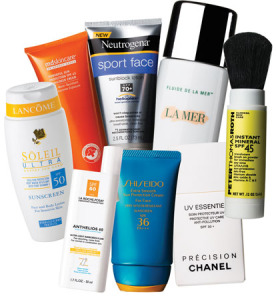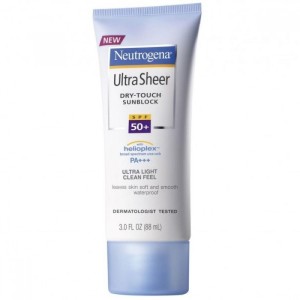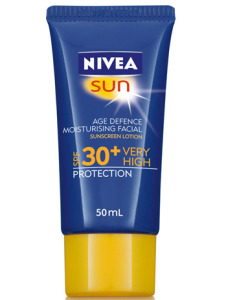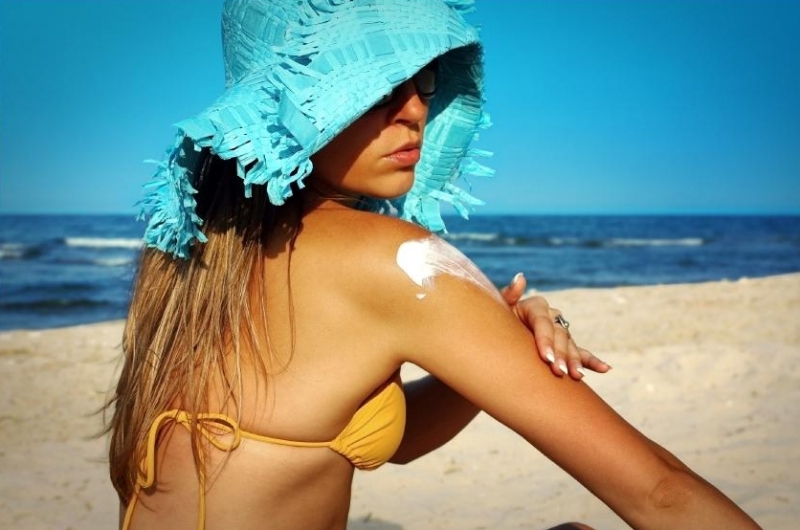Summer is around the corner and one question is in everyone’s head, How to beat the burning effect of sun? while still having fun and looking good! well Staying safe in the sun is important, but with our busy life, we often forget the most important step of skincare regimen “SUNSCREEN”, Not only it will protect your skin from burning, early skin ageing but also from skin cancer.“more than 1 million people in USA are diagnosed from skin cancer each year, and it is estimated that 60 to 65 % of melanoma skin cancers are associated with exposure to UV radiation from sun”. So no matter what your skin tone, eye color or hair color is, Sunscreen should be part of your daily routine. But the type of sunscreen you choose should be tailored to your daily routine and sun exposure.
Get your basic facts right before choosing perfect sunscreen for your skin:

What is sunscreen? And why sunscreen is important?
Sunscreen is topical skin product (comes in lotion, gel, spray and cream) that absorbs or reflects sun’s harsh Ultraviolet-UV rays (UVA, UVB) on the skin exposed to sunlight and shield it from sun damage. UVA ray is less intense then UVB however it can penetrate in skin easily compare to UVB and cause skin damage and early skin ageing. Researches shows that UVB is greater accelerant for skin cancer, recent studies implicate UVA as well. To reduce the risk, one should regularly use sun protection. Everyday application of sunscreen can slow or temporarily prevent the skin damage, development of wrinkles and sagging skin.
 So which is best sunscreen for you?
So which is best sunscreen for you?
Multi spectrum or broad-spectrum sunscreen should be best for all skin types since it protect from UVA and UVB rays. There is no rating to tell you how good sunscreen is in protecting you from UVA radiation, you need to pay attention in ingredient. Look for a sunscreen that contains at least one of the following, ecamsule, avobenzone, oxybenzone, titanium dioxide, or zinc oxide. Any of those should do the trick. (NOTE** Retinyl palminate has been associated with an elevated risk of skin cancer when used on sun-exposed skin, avoid sunscreen which contain retinyl palminate).
What is SPF? And how much is good for you?
SPF, sun protection factor, is a measure of how well a sunscreen will protect your skin from UV (A &B) rays, and it is not meant to help you determine duration of exposure. If your skin would normally burn after 10 minutes in the sun, applying an SPF 15 sunscreen would allow you to stay in the sun without burning for approximately 150 minutes (a factor of 15 times longer). Keep in mind that the higher the SPF, the smaller the increased benefit: contrary to what you might think, SPF 30 isn’t twice as strong as SPF 15.
- SPF 15 filters out 93% of UVB,
- SPF 30 filters out 97% of UVB, and
- SPF 50 filters out 98% of UVB, only a slight improvement 🙂
I know it’s complicated but for best protection most of dermatologist recommend using minimum SPF sunscreen of 15 and SPF 30. Don’t get fooled by high SPF sunscreen. High SPF products require higher concentrations of sun-filtering chemicals than low SPF sunscreens. Some of these ingredients may pose health risks when they penetrate the skin, where they have been linked to tissue damage and potential hormone disruption. Some may trigger allergic skin reactions(EWG). Beside that Sunscreens with really high SPFs, such as SPF 75 or SPF 100 are costlier than SPF 15 or SPF 30 , (first they do not offer significantly greater protection and second they are more expensive ), you see these are just marketing gimmick to mislead people.
Instructions:
- Use Broad Spectrum sunscreens (UVA + UVB) with SPF values of 15, 30 or higher regularly and as directed by expert.
- No to super high SPF: Products with sky-high SPFs may protect against sunburn but could leave your skin exposed to damaging UVA rays.
- Avoid spray sunscreen: i know most people use it because its very easy to apply, but spray sunscreen can be flammable, even when on your skin. If using make sure it has been rub and absorb thoroughly in to your skin and has dried (the alcohol has evaporated off).
- Time: Sunscreens should be applied 15 to 20 minutes before sun exposure to allow the ingredients to fully bind to the skin.
- Reapplication: Apply the proper amount, Reapply sunscreen at least every 2 to 3 hours, for maximum protection. (P.S sunscreen doesn’t last on your skin for more then 2 hours so reapplying is must)
- Limit time in the sun, especially between the hours of 10 a.m. and 3p.m., when the sun’s rays are most intense.
- Clothing: Wear light colored protective clothing to cover skin exposed to the sun, e.g. long-sleeved shirts, pants, sunglasses, and hats.
- Water and sweat resistance. If you’re going to be exercising or in the water, it’s worth getting a sunscreen resistant to water and sweat.
- Stop sun tanning, its not healthy, there are tons of products available for tanning, try airbrush, foam self-tanner and bronzing powder instead of suntan.
After trying so many sunscreens, these are My 2 personal favourites:
- Neutrogena ultra shear, dry touch SPF 50 (was prescribed by my dermatologist), this dry touch sheer sunblock is one of best sunscreen in market with perfect ingredient, consistency, easy to use and very effective, plus its oil free, water and sweat resistant. It has creamy texture that needs to take you some time to massage in. Once it absorbed by skin, it leaves no greasy feeling and give you powdery finish. It is suitable for all skin type, great for daily wear, outdoor activities and even poolside.

- Nivea moisturising sunscreen lotion: Nivea’s Moisturising Sunscreen Lotion SPF 30+contains rich, moisturising ingredients for smooth skin, plus vitamin E to protect the skin from dehydration and help minimise loss of skin elasticity during sun exposure. Four hours water resistant. Good for daily wear and suitable for all skin type.

Protect your self from sun damage, and if you know someone who could use this information, please send them this link 🙂
P.S STAY SAFE STAY BLESSED
















Wow, Nice article, so much important information, keep it up 🙂
Its not my first time to pay a visit this site, i am browsing this site dailly and take nice data from here daily.
Heya are using WordPress for your blog platform?
I’m new to the blog world but I’m trying to get started and set up my own. Do you need
any html coding knowledge to make your own blog? Any help would be really appreciated!
[…] which product is best for your personal use based on daily routine and period of exposure. Click here for more […]
Always a big fan of linking to bloggers that I like but really don’t get a good deal of link enjoy from.
Great post. I was checking constantly this blog and I am inspired!
Very helpful info specifically the closing section 🙂 I care for such information a lot.
I was looking for this certain information for a very lengthy time.
Thank you and best of luck.
10/21/2016 @ 11:36:22 says good job on this post, faridaisrail.com!